Press Release
Wellness Program Aims to Help Virginia Offenders Improve Health - State faces aging prison population with chronic medical conditions
April 06, 2015
RICHMOND — A wellness program initially targeted to older Virginians is helping offenders at five Virginia correctional facilities learn to manage their chronic diseases and improve their well-being.
Since late 2012, the Virginia Department for Aging and Rehabilitative Services and the Department of Corrections have collaborated with local area agencies on aging to offer wellness programs to nearly 300 adult offenders at the Bland, Coffeewood, Deep Meadow, Powhatan (now closed), and Pocahontas correctional facilities.
On April 17, April Holmes, DARS’ coordinator of prevention programs; Elisabeth M. Thornton of the Virginia Department of Corrections; and Joan S. Welch of Senior Connections, the Capital Area Agency on Aging, will discuss the program at the Southern Gerontological Society’s annual meeting in Williamsburg.
Virginia’s offenders are older, sicker and remain incarcerated longer than ever. About one-third have at least one chronic health condition. Between fiscal year 2010-2011, offsite, non-prescription health care expenses for Virginia’s offenders rose $8.7 million. Corrections officials are searching for innovative ways to respond to this issue.
“The wellness information the participants learned and the problem-solving techniques they shared are valuable not only while they serve their sentences but for when they re-enter society,” said DARS Commissioner Jim Rothrock. “As one offender told us, ‘the lessons you all have taught me will last a lifetime.’”
The Commonwealth’s collaboration is an outgrowth of “You Can! Live Well, Virginia!,” DARS’ chronic disease self-management education program, which in a five-year partnership with area agencies on aging has helped more than 8,000 Virginians learn to better manage their health issues.
“Offenders often come into prison with long-standing health problems that need to be addressed,” said Virginia Department of Corrections Director Harold Clarke. “This program helps offenders with chronic conditions take charge of their own well-being, contributing to better health outcomes while they’re incarcerated and successful re-entry into their communities when they’re released.”
The federally funded “You Can! Live Well, Virginia!” program consists of weekly 2 1/2 hour sessions held by trained leaders. Over a six-week period, adults with chronic illnesses such as asthma, arthritis, diabetes and heart disease learn to better manage their conditions. Offenders, for example, were asked to identify specific health concerns and the problems they can cause. Participants learning about healthy eating kept a diary of their diet and then discussed what they learned about the food choices they make while in prison.
The wellness program saw 283 offenders attend at least one workshop, while 222 offenders, or 78 percent, attended at least four – roughly the same percentage among participants in Virginia’s general public, according to DARS’ Holmes.
“You Can! Live Well, Virginia!” is the statewide name for several disease self-management programs developed by Stanford University. DARS plans to apply this spring for a new federal grant to study whether the workshop lowers the rates at which participants who qualify for both Medicare and Medicaid use local emergency rooms.
Virginia’s initial success led to several popular spinoffs such as workshops specifically for older adults with diabetes and versions offered in Spanish, Korean and other languages. Programs for cancer survivors and for chronic pain self-management will be offered in some areas. Young adults and staff at the Woodrow Wilson Rehabilitation Center, which provides vocational rehabilitation for people with disabilities, participate in workshops held at the campus in Augusta County.
Visit http://bit.ly/1zdcpib to watch a video of Joshua Richardson, a cognitive counselor at Bland Correctional Center, talk about the program and its success for the offenders with whom he worked.
The Virginia Department for Aging and Rehabilitative Services, in collaboration with community partners, provides and advocates for resources and services to improve the employment, quality of life, security, and independence of older Virginians, Virginians with disabilities, and their families. For more information, visit www.vadars.org or follow DARS on Facebook at www.facebook.com/vadars or Twitter at @vadars.
